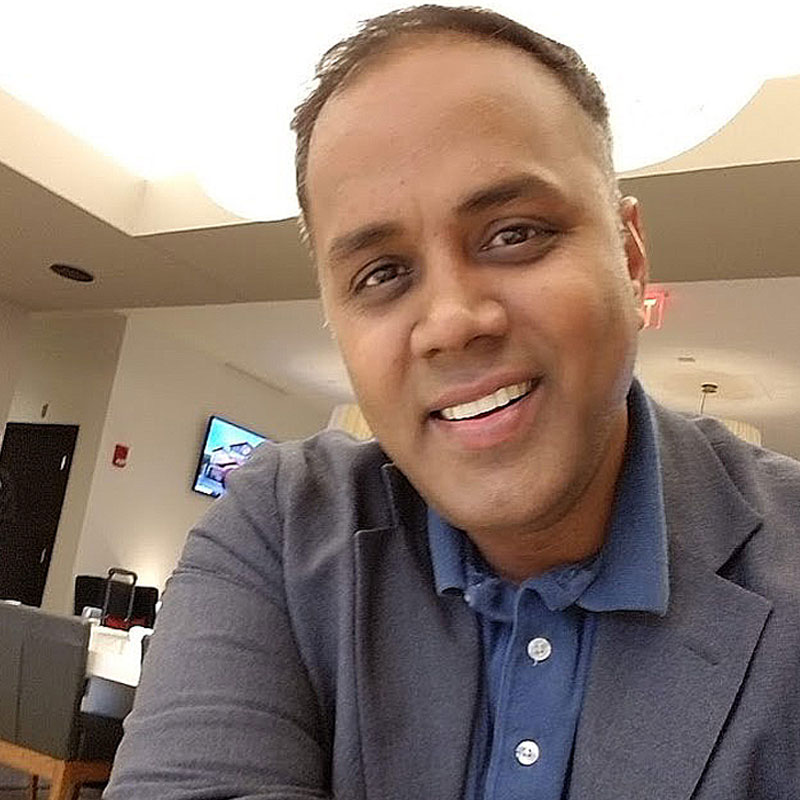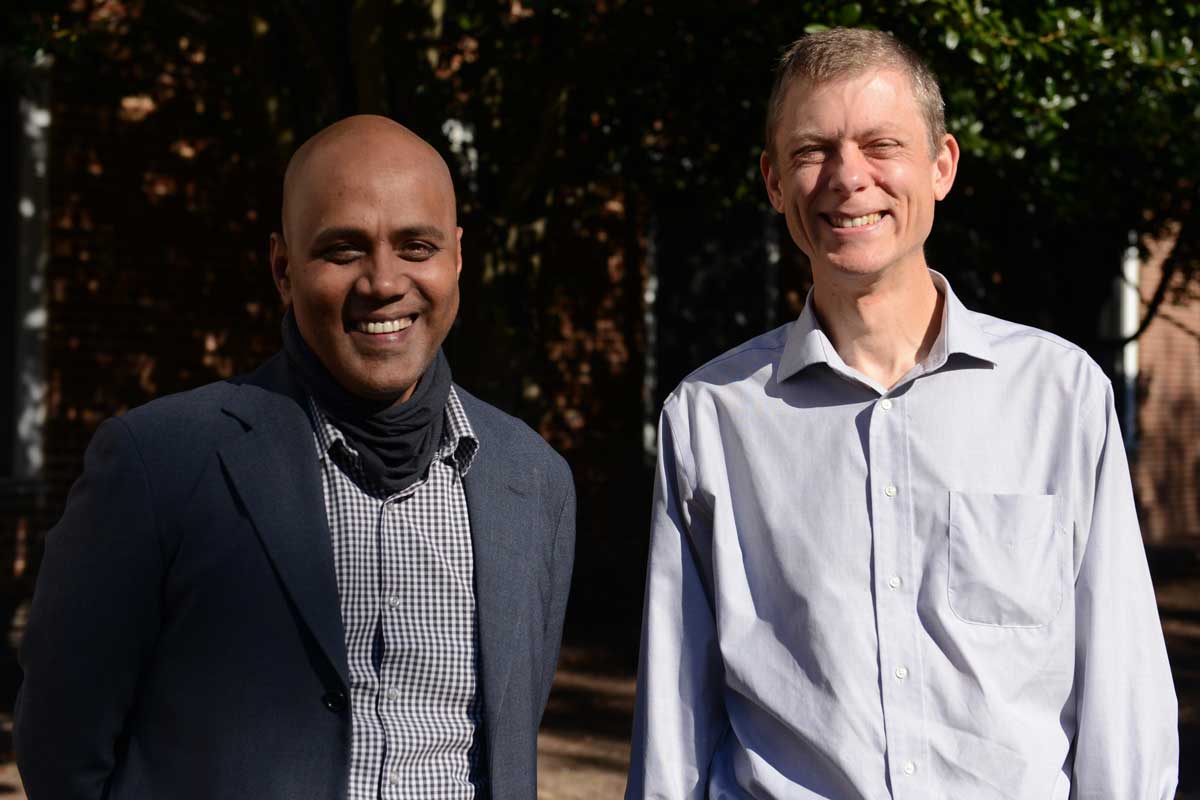Boundless Curiosity
Engineers are curious people, looking to understand and solve the challenges they see in the world around them. Alumnus Balaji ‘Baloo’ Panchapakesan (Ph.D. ’01, mechanical engineering) is no exception, bending his mechanical engineering skills to developing new cancer-detection technologies. However, Panchapakesan’s curiosity often takes him far beyond the lab, from the summit of Kilimanjaro to traveling in a perpetual quest for understanding and connection through the exploration of culture, history and people. “People interest me,” said Panchapakesan, currently a Professor of Mechanical Engineering at Worcester Polytechnic Institute where he founded the Small Systems Laboratory (SSL). “Understanding people through transcending cultural and historical human boundaries not only enables new excitement in life, but can bring the world closer together.” That understanding is also fundamental to his problem-solving mindset as an engineer. “There is tremendous value in being ‘globally engaged’,” said Panchapakesan. “Sometimes, the answers you are looking for may not be in the U.S., but you may find them in India, or elsewhere, so making ‘global engagements’ on a human-to-human level can benefit countries, societies and humanity overall.” One such benefit that Panchapakesan hopes to create through his international and mechanical engineering connections is improving the outcomes for breast cancer patients. In 2022, he will be returning to his home country of India as a Fulbright Scholar with the mission to build a network of clinicians, scientists, cancer researchers and patients in pursuit of developing better diagnostic tools and technologies based on his liquid biopsy chip—a diagnostic chip capable of capturing tumor cells in a blood sample with greater than 90% sensitivity. The challenges of breast cancer patients in India is of particular interest to Panchapakesan since his mother was diagnosed with stage-4 breast cancer in 2013. While she is one of the fortunate survivors, outcomes for most women diagnosed with the disease in India are far less optimistic. “Cancer is never really cured,” said Panchapakesan. “And women in India—especially in rural areas—don’t have much information on breast cancer, let alone access to mammograms or screenings. If our research is successful, it could enable large-scale screenings for populations in India.” The root of his research is aimed at investigating metastatic cancer cells, determining their properties and developing diagnostic tools that leverage that information. “Tracking metastasis is critical for cancer patients since just because you remove a cancerous tumor, you do not know if that tumor has already shed cells off into the body,” he explained. “And there are certain markers for these metastatic cells, which could eventually be part of routine blood screenings.” Panchapakesan is also looking at biopsy samples for a link between tumor size and the number of metastatic cancer cells present. “Tumor size is not indicative of a cancer’s malignancy, so I am trying to see if there is a relationship between the percentage of metastatic cells present and tumor size to determine the possible rate or likelihood of the cancer spreading.” said Panchapakesan. “Cancer cell mechanics is the fundamental nature of my research. Specifically, I am looking at how the cells are spreading, how these cells are going to change size or deformation, etc. to bring mechanical engineering solutions to cancer resolution.” Beyond cancer research, Panchapakesan has also set his sights on another lofty goal—to climb the ‘seven summits’—the highest peaks on the seven continents of the world. While many climbers see the seven summits as a list to be conquered, Panchapakesan sees the summits as a vehicle for exploring what it means to be human and connecting with the world to find inner peace. “Climbing something is an inherent human condition. We always want to climb something, whether it is physical, societal, economic, scientific or some other ladder in life,” he said. “But physically climbing a mountain brings meaning and inner peace to me. You are one with nature. I climb to reflect on our human condition.” Ever a student of curiosity, Panchapakesan is excited for the opportunities ahead in India, continuing his travels, and working with the diverse network of colleagues he has fostered over his career. “The universities in the United States have always been these fantastic melting pots, bringing people together from all over to create great ideas and research which can shape the entire world through our academic communities,” he said, having served as a faculty member for both the University of Delaware and the University of Louisville before WPI.
“I love our universities and have been fortunate since graduating from the University of Maryland to work for several great institutions. I owe a great debt to Dr. Don DeVoe as his first Ph.D. student, and also to my former employers. Interdisciplinary research is so important these days. If you can understand a problem from a different field, you can often bring new solutions from your own expertise.”
Related Articles: November 16, 2021 Prev Next |
|



